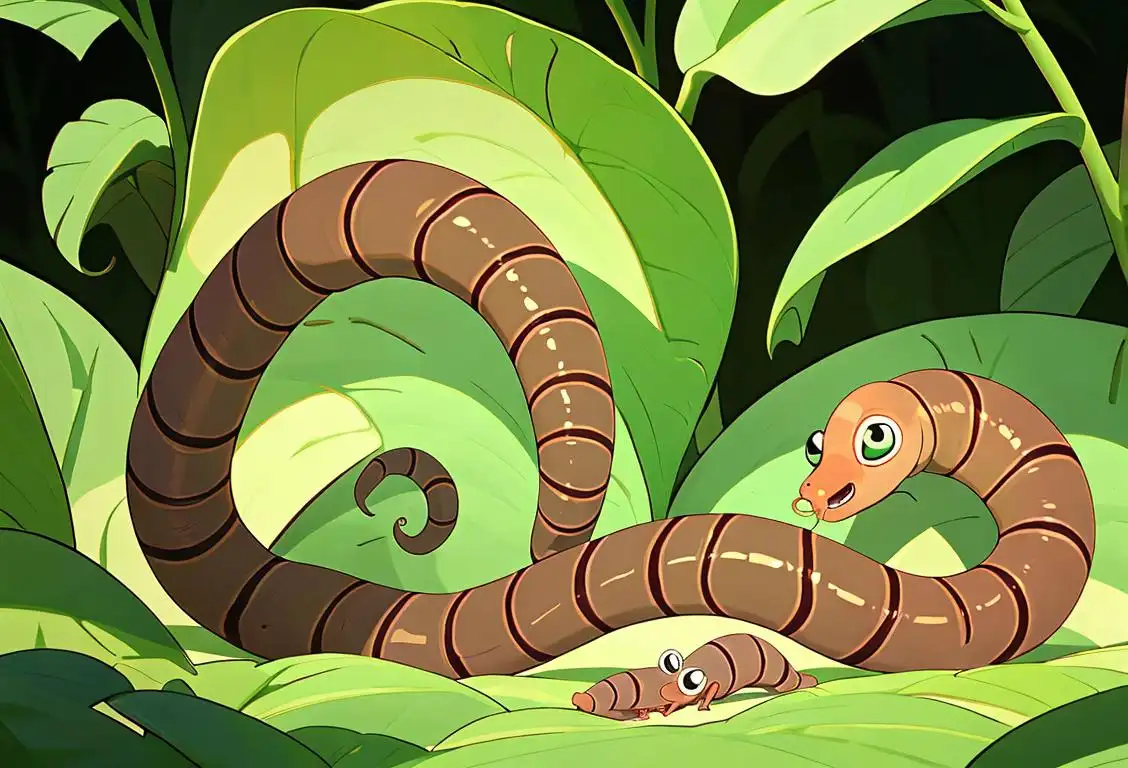National Worm Day

Hey there, worm enthusiasts! Are you ready to dig deep into the fascinating world of worms? Well, mark your calendars because it's time to celebrate National Worm Day! Get ready for some wiggly fun as we explore the squirmiest creatures that inhabit the earth.
When is Worm Day?
It's national worm day on the 15th October.
A Brief History of Worms on the Internet
When it comes to the internet, worms have had their fair share of fame. No, we're not talking about the kind you find in your garden, but rather the digital kind that can wreak havoc on your computer. In the early days of the internet, worms were a major concern for users. These malicious programs would replicate themselves and spread from computer to computer, causing all sorts of chaos.
One of the most infamous worms in internet history is the Morris Worm, which was unleashed back in 1988. Created by a student at Cornell University, this worm infected thousands of computers and was one of the first major incidents of its kind. It was a wake-up call for internet security and led to advancements in protecting against worms and other forms of malware.
Why We Celebrate National Worm Day
While worms may have caused some trouble on the internet, National Worm Day is all about celebrating the amazing creatures that play a vital role in our ecosystem. Did you know that worms are nature's recyclers? They break down organic matter, like fallen leaves and dead plants, into nutrient-rich soil. Without worms, our gardens and farms wouldn't be as fertile, and our planet's natural processes would grind to a halt.
This special day is a chance to appreciate the unsung heroes of the underground. You can celebrate National Worm Day by learning more about these fascinating creatures, starting your own worm composting bin, or even going on a worm-hunting adventure in your backyard!
Did You Know?
Did you know that worms don't have lungs? Instead of breathing through lungs like we do, worms breathe through their skin. It may sound strange, but it works for them!
History behind the term 'Worm'
Old English Period (5th-11th century)
Origins of the term 'worm'
The term 'worm' originated from Old English, derived from the Proto-Germanic word 'wurmaz'. In Old English, the term had a broader meaning and was used to describe any creeping or crawling creature, including snakes, dragons, and even caterpillars.
Middle English Period (11th-15th century)
Evolution of the term 'worm' to represent serpents
During the Middle English period, the term 'worm' gradually became more specific and began to refer primarily to serpents or snakes. This shift in meaning was influenced by the association of these creatures with evil and chaos in medieval folklore and religious texts.
Early Modern English Period (16th-18th century)
Expansion of the term 'worm' to include various invertebrates
In Early Modern English, the term 'worm' expanded its meaning once again to include various invertebrate creatures such as earthworms, larvae, and other small elongated animals. This broadened understanding reflected the growing knowledge and interest in the natural world during the Renaissance and Enlightenment periods.
Modern Times (19th century-present)
Contemporary usage of the term 'worm'
In contemporary times, the term 'worm' continues to be used to describe a wide range of creatures, including invertebrates like earthworms, parasites like intestinal worms, and even computer viruses. The term has also found its way into idiomatic expressions and metaphors, such as 'bookworm' or 'worms of doubt,' further highlighting its cultural impact.
Did you know?
Did you know that worms don't have lungs? Instead of breathing through lungs like we do, worms breathe through their skin. It may sound strange, but it works for them!Tagged
awareness funFirst identified
15th October 2016Most mentioned on
15th October 2016Total mentions
5Other days
Nurses Day
Former Prisoner Of War Recognition Day
Press Day
Handloom Day
Heroes Day
Memorial Day
Dance Day
Bestfriends Day
Liberation Day
Love Your Pet Day









